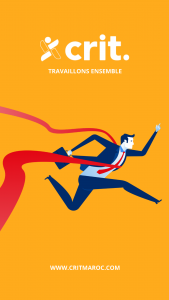5 conseils pour réussir son e-mail de suivi pour une demande d’emploi


Vous pouvez soumettre votre candidature en toute confiance et anticiper une entrevue. Mais étant donné qu’une entreprise peut recevoir de nombreuses candidatures pour une seule offre d’emploi, il est toujours possible que la votre passe entre les mailles du filet.
Dans un marché de travail concurrentiel, vous devez être proactif. C’est ainsi que vous vous démarquez des autres candidats. Si vous ne vous sentez pas à l’aise d’appeler votre recruteur pour vous renseigner sur l’avancement de votre candidature, vous pouvez faire un suivi par e-mail. Voici cinq conseils pour le rédiger efficacement.
The Literature of Luck: Exploring Gambling’s Role in Classic Novels and Luxury Casino
Have you ever wondered about the role of luck in literature? How it shapes the destinies of characters and drives the plot forward? From the roll of the dice to the spin of the roulette wheel, gambling has long been a captivating theme in classic novels, adding an element of uncertainty and excitement to the story. In this article, we will delve into the fascinating world of gambling in literature, exploring its significance and impact on some of the greatest works of fiction. Join us as we uncover the hidden connections between luck, chance, and the human condition, and discover how these timeless tales continue to captivate readers across generations.
From Fyodor Dostoevsky’s « The Gambler » to Ian Fleming’s iconic James Bond series, the allure of the casino has been a recurring motif in literature. But what is it about gambling that makes it such a compelling subject for writers? Is it the thrill of risk-taking, the potential for great fortune, or the darker side of addiction and loss? We’ll explore these questions and more as we examine the role of luck and gambling in classic novels. Additionally, we’ll take a closer look at the world of luxury casinos, where the rich and famous gather to test their luck and indulge in opulence. So, whether you’re a literature enthusiast, a gambling aficionado, or simply curious about the intersection of luck and storytelling, get ready to embark on a literary journey that will leave you pondering the role of chance in our lives.
The allure of chance: Examining the portrayal of gambling in classic literature
The Literature of Luck: Exploring Gambling’s Role in Classic Novels and Luxury Casino
Gambling has long been a popular theme in literature, with many classic novels delving into the exhilarating world of chance and luck. From Fyodor Dostoevsky’s « The Gambler » to Ian Fleming’s James Bond series, gambling serves as a powerful backdrop for storytelling, revealing the complexities of human nature and the allure of risk-taking. In these literary works, the characters’ fates often hinge on a roll of the dice or a turn of the cards, showcasing the unpredictable nature of life itself. For those seeking to experience the thrill of gambling in a luxurious setting, luxurycasinoslots.com Canada offers a premier online platform where players can indulge in their favorite casino games.
When it comes to classic novels, gambling is not merely a plot device, but a means to explore deeper themes and character development. In Fyodor Dostoevsky’s « The Gambler, » the protagonist’s obsession with roulette mirrors his personal struggles with addiction and self-destructive behavior. Similarly, in Leo Tolstoy’s « Anna Karenina, » the character of Alexei Karenin finds solace in the game of cards, highlighting his detachment from his crumbling marriage. These literary works paint a vivid picture of the highs and lows of gambling, capturing the essence of human desire and the consequences of taking risks. At luxurycasinoslots.com Canada, players can embark on their own thrilling gambling adventures, immersing themselves in a world of opulence and excitement from the comfort of their own homes.
For those seeking a taste of luxury and the thrill of gambling, luxurycasinoslots.com Canada provides an unparalleled online casino experience. With a wide range of games to choose from, including slots, poker, roulette, and blackjack, players can enjoy the same excitement and sophistication found in brick-and-mortar casinos. The platform offers a user-friendly interface, seamless gameplay, and secure transactions, ensuring a seamless and enjoyable gambling experience. Whether you’re a fan of classic novels that explore the role of gambling or simply looking for an exciting way to test your luck, luxurycasinoslots.com Canada is the ultimate destination for casino enthusiasts.
From Dostoevsky to Fitzgerald: Analyzing the impact of gambling on character development in iconic novels
The literature of luck has long fascinated readers, with many classic novels exploring the role of gambling in society. From Fyodor Dostoevsky’s « The Gambler » to Ian Fleming’s « Casino Royale, » these novels delve into the thrilling world of high-stakes gambling and its impact on the characters’ lives. Through vivid descriptions and intricate storytelling, these books transport readers to the luxurious settings of casinos, where fortunes can be won or lost in an instant.
One such iconic location is the Luxury Casino, a haven for the rich and famous. In these opulent surroundings, the characters in these novels are drawn into a world of glamour and risk. The casino becomes a microcosm of society, where the boundaries between social classes blur and where luck can determine one’s fate. The literature of luck not only explores the addictive nature of gambling but also delves into deeper themes such as greed, power, and the human desire for control. Through these novels, readers are invited to reflect on the role of chance in their own lives and the consequences that can arise from testing their luck.
A glimpse into the high-rolling world: Unveiling the glamorous depiction of luxury casinos in literature
Throughout the history of literature, gambling and luck have played significant roles in shaping the narratives of classic novels. From Fyodor Dostoevsky’s « The Gambler » to Ian Fleming’s James Bond series, the thrill and uncertainty of gambling have provided a backdrop for complex characters and gripping storylines. These novels explore the psychology of risk-taking, the allure of chance, and the consequences of both winning and losing. The literature of luck delves into the depths of human nature, examining the motivations behind gambling and the impact it has on individuals and society as a whole.
In parallel to the world of literature, luxury casinos have emerged as glamorous destinations that embody the spirit of high-stakes gambling. These opulent establishments offer a unique blend of entertainment, sophistication, and adrenaline. With their elegant interiors, world-class amenities, and a wide array of games, luxury casinos provide an immersive experience that mirrors the allure and excitement found within classic novels. Whether it’s the roulette wheel spinning, the sound of a deck of cards being shuffled, or the anticipation of a big win, luxury casinos captivate the imagination and transport visitors into a world where luck reigns supreme.
The gambler’s dilemma: Exploring the moral and psychological implications of gambling in classic novels
Throughout the history of literature, luck and gambling have played significant roles in shaping the narratives of classic novels. From Fyodor Dostoevsky’s « The Gambler » to Ian Fleming’s James Bond series, the allure of casinos and the thrill of games of chance have captivated readers worldwide. These novels delve into the psychology of risk-taking, exploring the consequences of gambling on the characters’ lives and their pursuit of fortune.
One iconic example is F. Scott Fitzgerald’s « The Great Gatsby, » where the opulent world of the Roaring Twenties is intertwined with the theme of luck. The novel’s protagonist, Jay Gatsby, becomes wealthy through bootlegging and illegal gambling, symbolizing the allure and dangers of the pursuit of wealth and success. The extravagant parties and high-stakes gambling scenes reflect the decadence and excesses of the era, showcasing the power of luck to both elevate and destroy lives.
In the realm of luxury casinos, the connection between literature and gambling continues to thrive. The lavish settings and glamorous atmosphere of casinos have inspired countless novels, providing a backdrop for tales of high-stakes bets and twisted destinies. Authors like Martin Scorsese, with his book « Casino, » and Anthony Holden, with « Big Deal: One Year as a Professional Poker Player, » have explored the intricate world of casinos, shedding light on the psychology and allure of gambling.
In conclusion, the literature of luck unveils the fascinating connection between gambling and classic novels, as well as the allure of luxury casinos. Through the lens of iconic works like Fyodor Dostoevsky’s « The Gambler » and Ian Fleming’s James Bond series, we gain a deeper understanding of the complex role that chance and risk play in shaping characters and driving plotlines. Furthermore, the opulent world of high-end casinos, such as the renowned Casino de Monte-Carlo, adds an extra layer of glamour and excitement to the gambling experience. Whether we delve into the pages of a novel or step foot into a lavish casino, the literature of luck reminds us of the timeless appeal and ever-present thrill of taking a chance.
1.Laissez suffisamment de temps pour passer à l’action
Si vous êtes sans emploi depuis plusieurs semaines ou plusieurs mois, vous êtes naturellement impatient de trouver du travail. Mais n’envoyez pas de courriel de suivi le lendemain de la soumission de votre demande.
De manière concrète, un recruteur peut prendre quelques jours pour trier les dizaines de candidatures reçues. Il n’y a pas de règles strictes ou rapides concernant la durée d’attente, mais certains experts en carrière recommandent d’attendre au moins trois à cinq jours avant de faire un suivi.
2.Envoyez votre e-mail à la bonne personne
N’envoyez pas votre e-mail de suivi à une adresse e-mail aléatoire. Votre message se retrouvera probablement dans la mauvaise boîte de réception et rien ne garantit qu’il sera transféré à la bonne personne.
Si l’offre d’emploi contenait une adresse e-mail, envoyez votre mail de suivi à celle-ci. Vous pouvez également parcourir le site Web de l’entreprise. Il peut y avoir des informations sur les employés. La page LinkedIn de l’entreprise peut également contenir des informations de contact.
Conseil : Si vous disposez de l’adresse e-mail du service des ressources humaines, mais que vous ne trouvez pas de nom, adressez votre adresse e-mail au nom du « responsable du recrutement ».
3.Soyez professionnel et précis
Il est important de faire une bonne première impression. Ceci est un e-mail professionnel, donc votre introduction et votre langage doivent être professionnels. Ne vous adressez pas au recruteur uniquement par son prénom et n’utilisez pas d’introductions telles que «salut». Voici des exemples de salutation professionnelle:
« Monsieur -nom du responsable de recrutement-«
« Bonjour M. -nom du responsable de recrutement-«
Identifiez également l’objectif de votre mail. Par exemple: « E-mail de suivi pour le poste d’assistante de direction »
4.Gardez votre message bref
C’est aussi l’occasion de se vendre et d’attirer l’attention sur vos qualifications, mais ne répétez pas tout ce qui est déjà inclus dans votre lettre de motivation, ou votre CV.
Soyez enthousiaste, mais bref. Par exemple: Bonjour M. -nom du responsable de recrutement-, «Il y a une semaine, j’ai postulé pour le poste d’assistante de direction publié sur votre site Web. Je n’ai pas reçu de réponse de votre part et je souhaite confirmer que ma candidature a bien été reçue. Je suis convaincue que mes compétences administratives et mes 5 ans d’expérience en tant qu’assistante de direction feront de moi la candidate idéale pour ce poste.
Je serais ravie d’avoir l’opportunité de vous rencontrer personnellement et de discuter de la manière dont je peux être un atout pour votre entreprise. »
5.Relisez vous avant l’envoi
Si vous êtes enthousiaste et impatient, vous pouvez rédiger et envoyer rapidement votre e-mail sans relecture.
Cependant, il s’agit de la première impression que le recruteur aura de vous. Votre e-mail doit donc être exempt de fautes d’orthographes et d’erreurs grammaticales. Rédigez votre mail de suivi, puis éloignez-vous de l’ordinateur pendant 15 ou 20 minutes. À votre retour, il peut être plus facile d’identifier des erreurs.
Si vous n’êtes pas proactif ou si vous avez peur de prendre l’initiative, vous risquez de rater des opportunités d’emploi. Un e-mail de suivi est un moyen de se démarquer des candidats, et cela pourrait être l’astuce pour obtenir une première entrevue.
